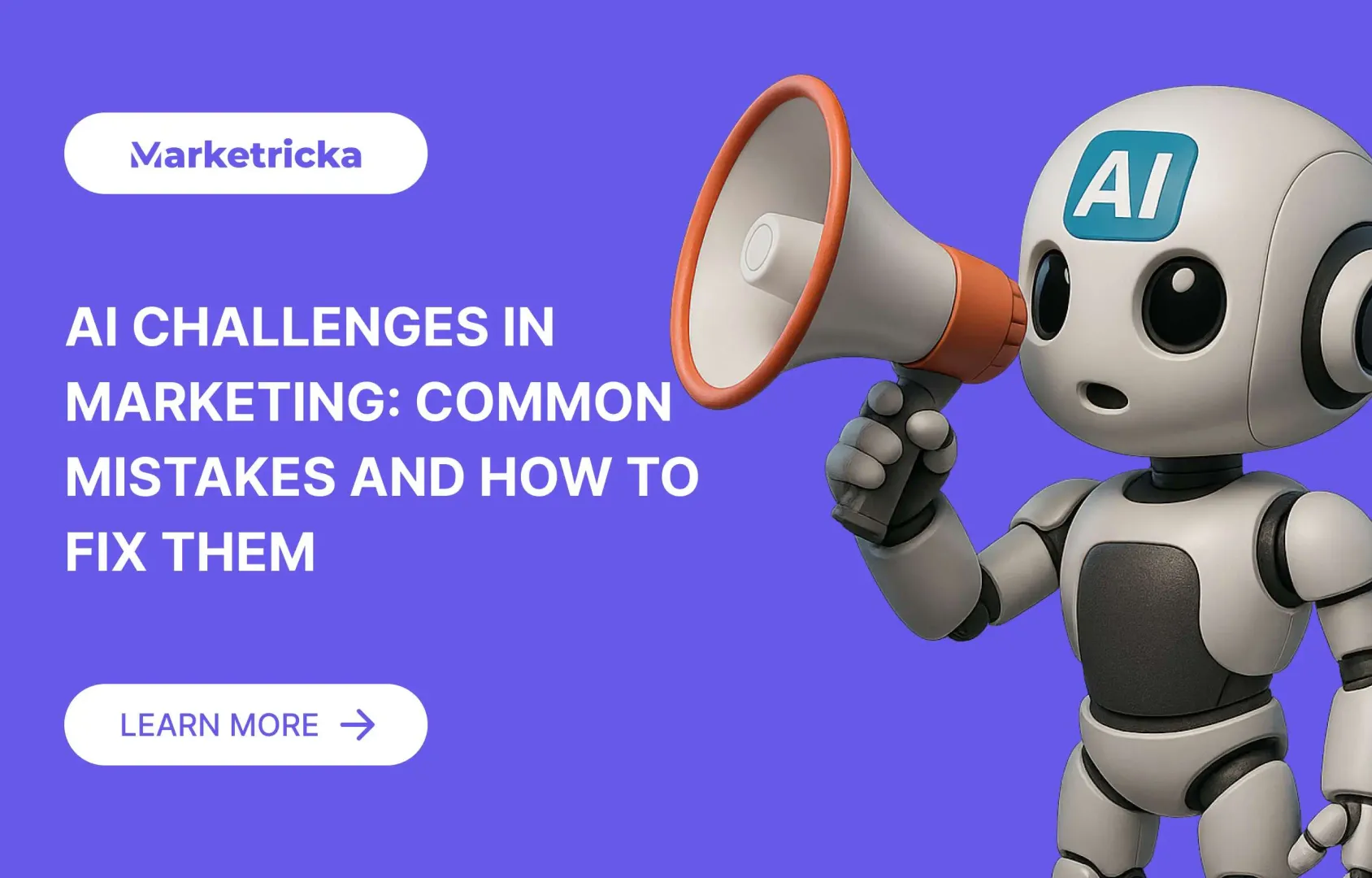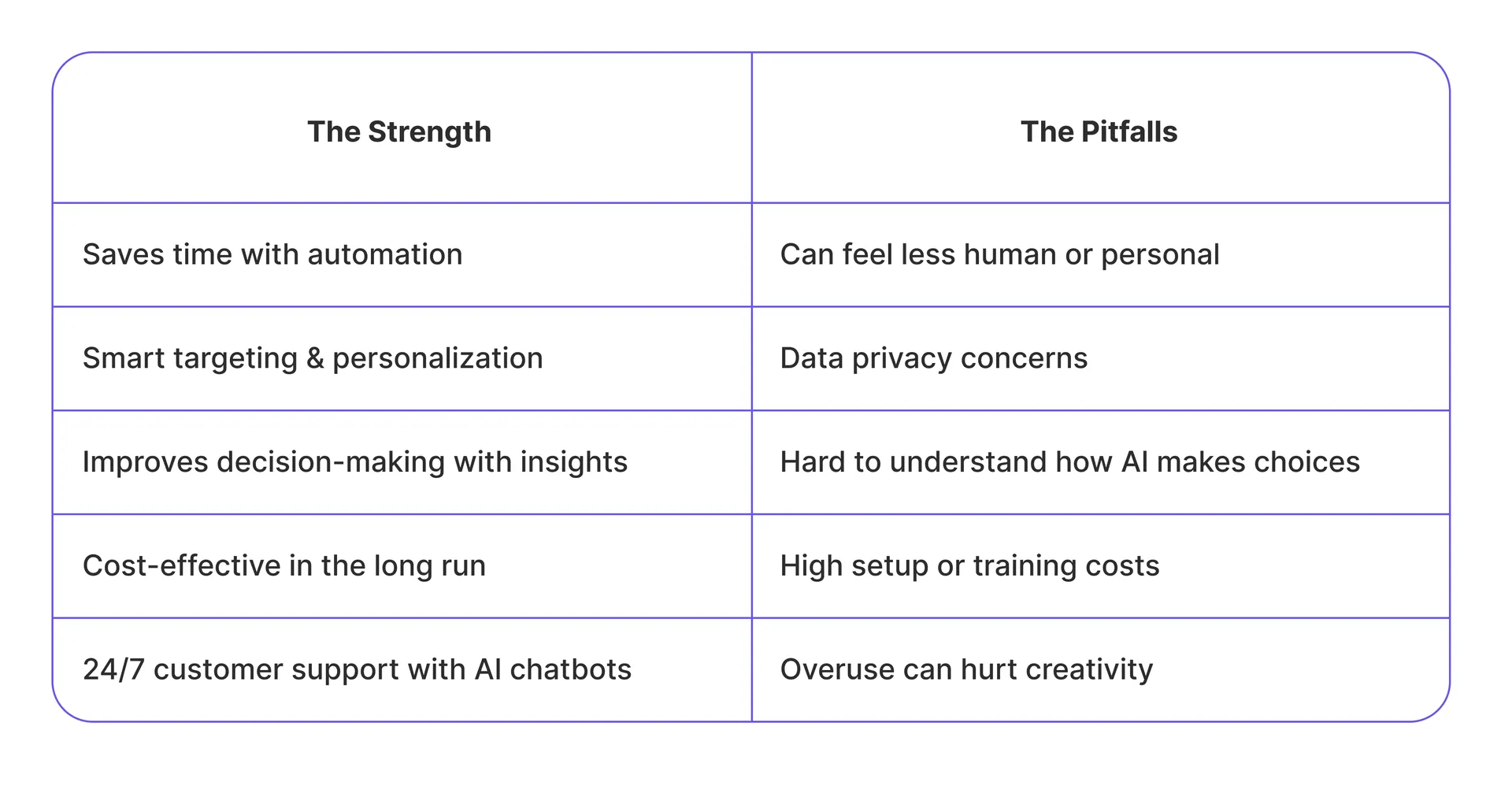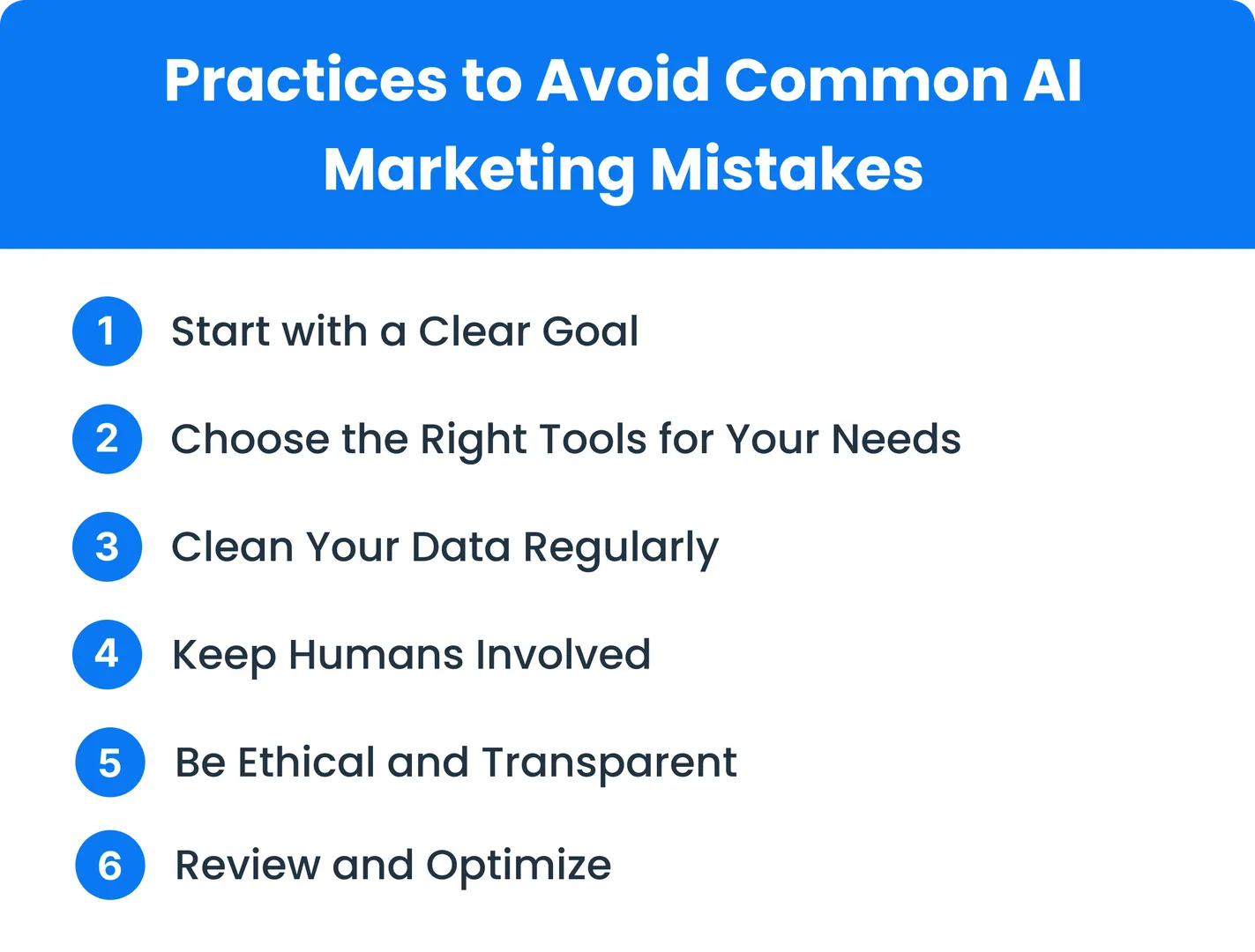AI Challenges in Marketing: 7 Critical Mistakes Costing Businesses ROI in 2025
Discover the top AI marketing challenges in 2025, common automation mistakes costing ROI, and proven solutions to optimize artificial intelligence tools for better campaign performance.

Summary:
Artificial intelligence is revolutionizing digital marketing, with 73% of businesses already using AI tools for customer segmentation and targeting (Source). However, the rush to implement AI marketing solutions has created a landscape filled with costly mistakes and missed opportunities.
The Reality: While AI promises enhanced personalization, automated customer journeys, and predictive analytics, most businesses struggle with AI challenges in marketing that drain budgets without delivering expected results.
In this comprehensive guide, we'll explore the most critical AI marketing mistakes, reveal why 65% of AI implementations fail to meet ROI expectations, and provide actionable solutions to maximize your artificial intelligence marketing performance.
Why AI Marketing Challenges Are Costing Businesses Millions in 2025
The artificial intelligence marketing revolution isn't just hype; it's a $15.84 billion industry growing at 26.2% annually (Source). However, with great power comes great responsibility, and most organizations are unprepared for the complexities of AI-driven marketing campaigns.
AI helps marketers automate repetitive tasks like email scheduling, ad placement, and customer segmentation, saving an average of 2.5 hours daily per marketer.
It improves decision-making by analyzing large amounts of data quickly and accurately, processing 40x more data than human analysts.
Personalization is more effective with AI, allowing brands to deliver customized content to each user, increasing conversion rates by up to 202%.
Despite its benefits, there are AI challenges in marketing, such as data privacy concerns and a lack of transparency in algorithms, affecting 68% of marketing teams (Source).
The Strengths vs. The Pitfalls of AI in Marketing
Understanding both the advantages and AI marketing challenges is crucial for successful implementation. Here's what every marketing professional should know about the current artificial intelligence marketing landscape:

7 Critical AI Marketing Mistakes That Kill ROI
Mistake #1: Misunderstanding AI's Role in Marketing Strategy
The Problem: You think AI is magic and can replace your entire marketing team.
Reality Check: AI is great at data analysis and automation, but it can't create strategy or understand emotions. It's a smart assistant, not a replacement for human creativity.
Quick Fix:
Use AI for repetitive tasks (scheduling, data sorting)
Keep humans for strategy and creative work
Set realistic goals for what AI can actually do
Mistake #2: Feeding AI Bad Data
The Problem: Your customer data is messy, outdated, or scattered across different tools.
What Happens: AI makes wrong decisions based on wrong information. Your campaigns target the wrong people, and you waste money on ads nobody wants to see.
Quick Fix:
Clean up your customer database monthly
Connect all your marketing tools to share the same data
Remove duplicate contacts and update old information
Use tools like HubSpot or Salesforce to keep everything organized
Mistake #3: Setting AI on Autopilot
The Problem: You set up automated campaigns and never check on them.
What Goes Wrong:
Emails sound robotic and impersonal
Ads target people at the wrong time
Your brand voice gets lost
Customers get annoyed by irrelevant messages
Quick Fix:
Review AI-generated content before it goes live
Check campaign performance weekly
Set up alerts for unusual activity
Always have a human approve important messages
Mistake #4: Ignoring Privacy Rules
The Problem: You collect customer data without permission or don't protect it properly.
The Cost: Privacy violations can cost millions in penalties, plus customers lose trust in your brand.
Quick Fix:
Ask permission before using customer data for AI
Tell people when AI is making decisions about them
Only collect data you actually need
Make it easy for customers to unsubscribe
Follow GDPR, CCPA, and other privacy laws
Mistake #5: Choosing the Wrong AI Tools
The Problem: You pick AI tools based on hype or features you don't need.
What Happens: You spend thousands on tools your team doesn't understand or use properly.
Smart Approach:
Start small with one tool that solves a specific problem
Test tools with free trials before buying
Pick tools that work with what you already have
Focus on your actual needs, not fancy features
Mistake #6: Not Training Your Team
The Problem: You buy AI tools but don't teach your team how to use them effectively.
Result: Tools sit unused, team members feel frustrated, and you don't see any return on investment.
Simple Training Plan:
Week 1: Basic tool overview and hands-on practice
Week 2: Integration with current workflows
Week 3: Advanced features and optimization
Ongoing: Monthly check-ins and skill updates
Mistake #7: Not Measuring What Matters
The Problem: You don't track whether AI is actually improving your marketing results.
What to Measure:
Time Saved: How much faster are you creating content or campaigns?
Better Results: Are conversion rates improving?
Cost Savings: Are you spending less to get the same results?
Customer Happiness: Do customers like the personalized experience?
Simple Success Formula: Compare 3 months before AI vs. 3 months after AI. If you're not seeing clear improvements, something needs to change.
Best Practices to Avoid Common AI Marketing Mistakes
Here are some best practices to help you avoid the most common mistakes:

1) Start with a Clear Goal
Know what you want AI to help you achieve — whether it’s more traffic, better leads, or faster content creation.
2) Choose the Right Tools for Your Needs
Don’t depend on generic platforms; pick tools that match your specific goals and workflows.
3) Clean Your Data Regularly
AI is only as good as the data you feed it.
4) Keep Humans Involved
AI can support your work — but it can’t replace your creativity, judgment, or experience.
5) Be Ethical and Transparent
Always protect user data and follow privacy laws.
6) Review and Optimize
Track how your AI tools are performing, and make changes when needed.
By following these simple steps, you can build a smarter, more effective AI marketing strategy one that helps your brand grow while avoiding the common mistakes many others make.
Conclusion
The AI challenges in marketing are real, but they're not impossible to overcome. Organizations that master artificial intelligence marketing see average revenue increases of 37% and cost reductions of 23%.
Your Action Plan:
Start with data quality: Audit your current data infrastructure
Choose one AI tool to try out first (recommend starting with content creation)
Set realistic expectations: Focus on 20% improvement goals initially
Invest in training: Allocate 10% of the AI budget to team development
Measure everything: Track both efficiency and effectiveness metrics
By 2025, AI-powered marketing will be common, not a competitive advantage. The advantage will go to organizations that implement AI thoughtfully, ethically, and strategically.